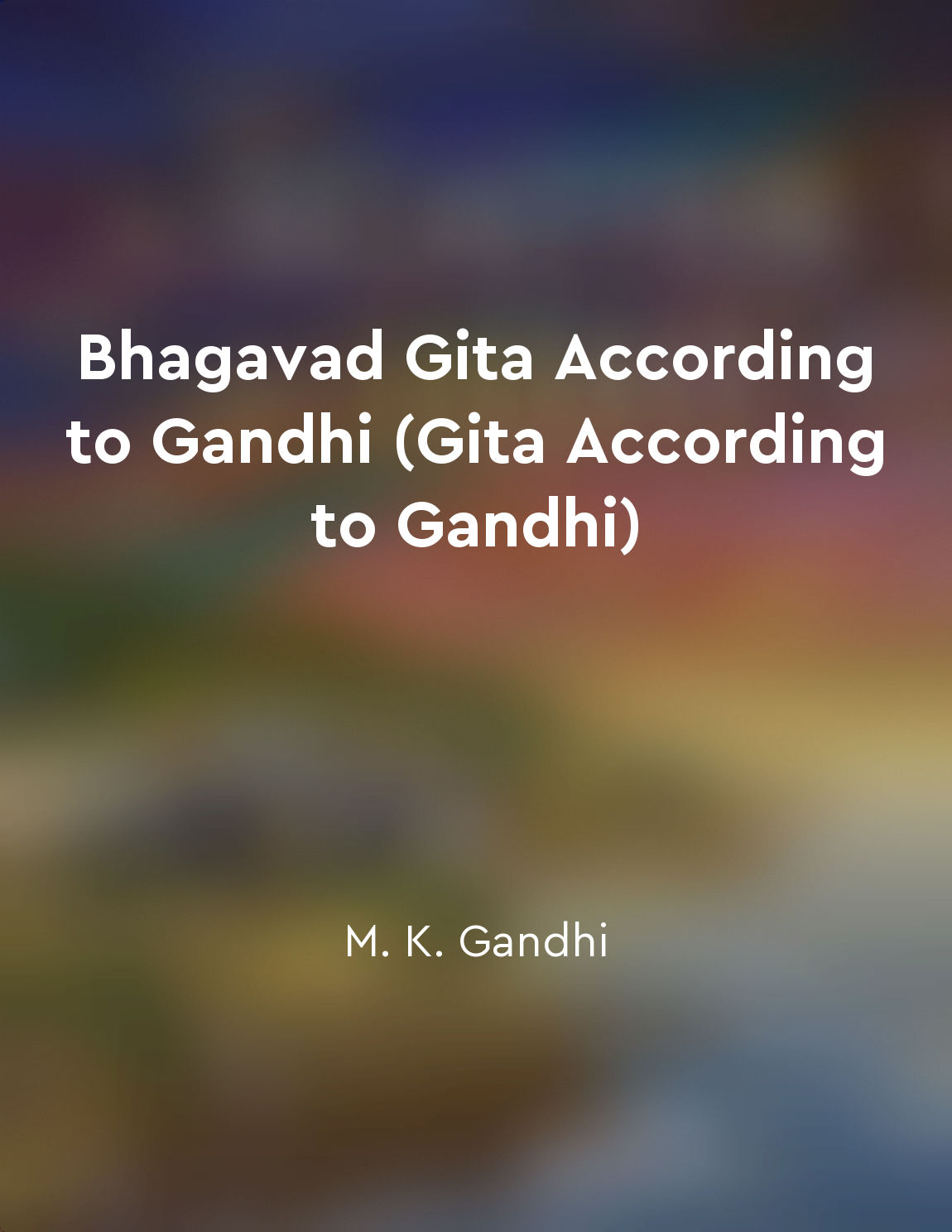Duty above personal preferences from "summary" of Bhagavad-Gita As It Is by A. C. Bhaktivedanta Swami Prabhupada
The concept of duty above personal preferences is a key teaching in the Bhagavad-Gita. In this sacred text, Lord Krishna instructs Arjuna to perform his duty as a warrior, even though he is faced with a difficult moral dilemma on the battlefield. Arjuna is torn between his personal attachments and the responsibilities that come with his role as a warrior. However, Lord Krishna emphasizes the importance of fulfilling one's duty without being attached to the results. Lord Krishna explains that it is Arjuna's duty to fight in the battle, as it is his role as a warrior to uphold justice and righteousness. He reminds Arjuna that it is better to die in the performance of one's duty than to live in the neglect of it. By emphasizing the importance of duty above personal preferences, Lord Krishna teaches Arjuna the value of selflessness and sacrifice. The concept of duty above personal preferences is rooted in the idea of selfless service, or karma-yoga. According to Lord Krishna, one must perform their duties with a sense of detachment, offering the results of their actions to a higher purpose. By surrendering one's personal desires and ego, one can achieve true fulfillment and spiritual growth. In practicing duty above personal preferences, one must cultivate a mindset of service to others and dedication to a higher cause. This requires discipline, commitment, and a willingness to put aside one's own desires for the greater good. By focusing on duty rather than personal gain, one can transcend the limitations of the ego and attain a higher level of consciousness.- The concept of duty above personal preferences teaches us the importance of selflessness, sacrifice, and service to others. By following this principle, one can find true fulfillment and purpose in life, and align themselves with the divine will. Lord Krishna's teachings in the Bhagavad-Gita serve as a timeless guide for living a life of righteousness, duty, and spiritual growth.
Similar Posts
Samarthan aur vishwas ka mahatva samjhein
Samarthan aur vishwas ka mahatva samjhein yani ki hamen samarthan aur vishwas ke mahatva ko samajhna chahiye. Yeh moolbhoot tat...
Treat everyone with love and respect
The teachings of the Bhagavad Gita emphasize the importance of treating everyone with love and respect. The Gita teaches us tha...
Conquering the mind for inner peace
The Bhagwat Gita teaches us that the mind is a powerful force that can either be our greatest ally or our worst enemy. When our...
Stay true to your values
The Bhagvat Gita teaches us to always be rooted in our principles and beliefs. This is essential for leading a purposeful and m...
भगवान केवल शुद्ध कर्म करने की ही मांग करते हैं।
भगवान केवल शुद्ध कर्म करने की ही मांग करते हैं। भगवान को भले ही हर किसी का समर्थन हो, लेकिन उन्हें शुद्ध कर्म करने की मांग है। ...
Geeta imparts wisdom for leading a purposeful and meaningful life
The teachings of the Bhagavad Gita are not just meant for intellectual pursuit or philosophical contemplation. They are practic...

Live in the present moment
Living in the present moment is a central teaching in the Bhagavad Gita. The text emphasizes the importance of focusing on the ...

Renounce selfish desires
The teaching of renouncing selfish desires is central to the Bhagavad Gita. According to this sacred text, selfish desires are ...

Arjuna's confusion on battlefield
The scene was set on the battlefield of Kurukshetra, where two armies were ready to clash in a great war. Arjuna, a mighty warr...

Transcending the cycle of birth and death
The concept of transcending the cycle of birth and death is a central theme in the Bhagavad Gita. According to the teachings of...

